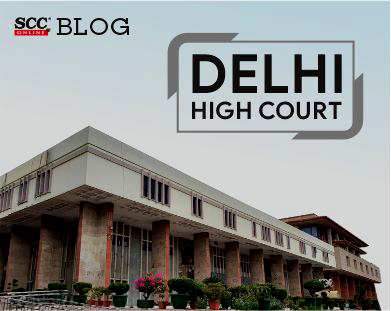Delhi High Court: In a case where revision petition was filed against the order passed by the Trial Court by which accused persons were discharged under Section 376 of Penal Code, 1860 (IPC), the Single Judge Bench of Swarana Kanta Sharma, J. held that an accused should not merely be discharged in a rape case because the victim had not stated about the same in her FIR, and hence, the Court set aside the Trial Court order to the extent of discharging the accused of rape.
Background
In 2016, the accused while he was getting some work done in the building near the house of the victim (complainant), made certain gestures towards the victim, to which she had objected. The accused along with his son and his friends went to quarrel with the victim but fled from the place when victim dialed the police control room. Three days later, the accused persons (respondents) unlawfully entered the victim’s house, who was five months pregnant, assaulted her with the intention to outrage her modesty.
On the next day of the incident, the complainant was taken to the hospital where she was medically examined due to stomach ache and bleeding from her genitals. During the investigation, the victim handed over a torn piece of kurta to the Investigating Officer (IO) and subsequently, her statement was recorded under Section 164 CrPC, wherein, the victim stated that one of the accused persons had inserted a finger inside her genitals. Thereafter, the charge sheet was filed under Sections 376, 323, 354, 354-B, 458, 509 and 34 of IPC and later, order on charge was passed by the Trial Court, by which the accused persons were discharged under Section 376 IPC.
Submissions of behalf of the Petitioner
Counsel for the petitioner submitted that the Trial Court, while passing the order, had exceeded its jurisdiction and had appreciated the evidence in detail at the stage of framing of charges. Further, it was stated that the complainant had revealed that she did not mention the occurrence of the incident earlier as she was afraid that her honour and dignity would be compromised. Counsel submitted that the Trial Court had ignored the settled law that even if two views were possible at the stage of framing of charge, the view in favour of the complainant should be accepted.
Submissions of behalf of the Respondent
Counsel for the respondent submitted that the medical examination of the victim revealed that there was an alleged history of physical assault by a neighbour, however, no history of any sexual assault, no complaint of pain in the abdomen/LPV/BPV and no fresh external injury on the body at the time of examination had been observed. Thus, the accusation of rape was a made-up story, hence, the petition should be dismissed.
Analysis, Law, and Decision
The Court relied on Asim Shariff v. National Investigation Agency, (2019) 7 SCC 148, wherein it was reiterated that the Trial Court was not supposed to divulge the evidence on the record to determine whether the accused would get acquitted or convicted if a particular charge was framed against an accused. The Court also relied on Vikram Johar v. State of Uttar Pradesh, 2019 SCC OnLine SC 609, wherein the Supreme Court had reiterated that during the stage of charge, the Court must not conduct a mini-trial and the decision should not be based on the prima facie appreciation of the materials placed on record.
The Court opined that the Trial Court at the stage of framing of charge, went on to marshal the evidence and found contradictions in the same. In relation to this, the Court relied on Hazrat Deen v. State of Uttar Pradesh, Special Leave to Appeal (Crl.) No(s). 9552 of 2021, wherein it was opined that “in her statement given by the prosecutrix under Section 164 CrPC after the prosecutrix attained majority, she categorically made statements which tantamount to offence under Section 376 IPC. Discrepancies between the FIR and any subsequent statement under Section 164 CrPC may be a defence. However, the discrepancies cannot be a ground for discharge without initiation of trial.”
The Court held that the Trial Court had committed an error in discharging the accused by giving undue weightage to the discrepancies in the statements of the complainant. Further, the Court stated that charge under Section 376 IPC could have been framed solely based on the statement made under Section 164 CrPC even if such an allegation was not made in the FIR or in statement under Section 161 CrPC. This was so because in offences like rape where only the victim was the witness in majority of the cases, the statement made by victim should be looked at from a considerate and liberal perspective at the time of framing charges. The Court also held that a statement made under Section 164 CrPC disclosing the offence of rape shall be sufficient to frame charges under Section 376 IPC and an accused should not merely be discharged under Section 376 IPC because the victim had not stated about the same in her FIR.
The Court held that the order passed by the Trial Court to the extent of discharging the respondents for an offence under Section 376 IPC was set aside and accordingly, charge under Section 376 IPC was framed against the respondents.
[State v. Mohd. Javed Nasir, 2022 SCC OnLine Del 3974, decided on 23-11-2022]
Advocates who appeared in this case :
For the Petitioner: Additional Public Prosecutor Manoj Pant;
For the Respondent(s): Advocate R.K. Singh;
Advocate Gagan Gupta.






